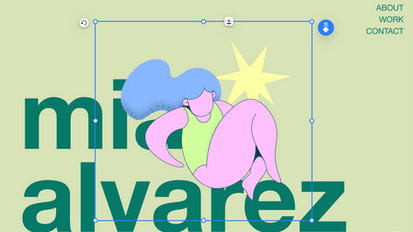Front Web Developer Trends
Front Web Developer in 3 Steps
Front Web Developer
Website Design Process: A Step-by-Step Guide

How to Front Web Developer
Front Web Developer
AI web developers are at the forefront of the technological revolution, as they leverage AI technologies to create smarter and more intuitive websites. These professionals have a deep understanding of AI algorithms, machine learning, natural language processing, and other AI technologies that enable them to create websites that can think, learn, and adapt to user preferences.
One of the key skills of an AI web developer is the ability to understand and implement AI algorithms. These algorithms are the foundation of AI technologies and enable websites to perform tasks such as personalized recommendations, natural language processing, image recognition, and more. AI web developers must have a strong grasp of these algorithms and be able to apply them effectively to create intelligent websites.
In addition to AI algorithms, AI web developers must also have expertise in machine learning. Machine learning is a subset of AI that enables computers to learn from data and improve their performance over time. By leveraging machine learning techniques, AI web developers can create websites that can analyze user behavior, predict user preferences, and provide personalized recommendations.
Another key skill of an AI web developer is proficiency in natural language processing (NLP). NLP is a branch of AI that enables computers to understand and interpret human language. AI web developers use NLP techniques to create websites that can interact with users in a more natural and intuitive way, such as chatbots and virtual assistants.
AI web developers also need to have a strong foundation in web development technologies such as HTML, CSS, JavaScript, and backend programming languages like Python or Java. These technologies are essential for building the structure and functionality of websites, and AI web developers must be able to integrate AI technologies seamlessly into the website’s architecture.
AI web developers are changing the landscape of web development by creating websites that are more intelligent, personalized, and user-friendly. These professionals are at the forefront of innovation, pushing the boundaries of what is possible in web development. By leveraging AI technologies, AI web developers are creating websites that can adapt to user preferences, provide personalized recommendations, and even anticipate user needs before they are expressed.
1. Type of Website
The type of website you want to build will have a significant impact on the cost. There are different types of websites, such as informational websites, e-commerce websites, portfolio websites, and more. Each type of website has its own unique requirements and features that can influence the overall cost of development. For example, an e-commerce website with features like online payment integration and inventory management will typically cost more to develop than a simple informational website.
2. Design
The design of a website plays a crucial role in its overall success. A well-designed website not only enhances the user experience but also reflects the brand’s identity and values. The cost of website design can vary depending on the complexity of the design, the number of pages, and the level of customization required. Custom-designed websites tend to cost more than using pre-made templates, but they offer a unique and tailored design that sets you apart from competitors.
3. Development
The development phase of a website involves turning the design into a functional website. This includes coding, testing, and optimizing the website for performance. The cost of development can vary based on various factors such as the technology stack used, the number of features and functionalities, and the level of customization required. Hiring skilled developers and programmers can also impact the overall cost of website development.
4. Content Management System (CMS)
A Content Management System (CMS) is a software that enables users to manage and update the content of their website without the need for technical expertise. Popular CMS platforms like WordPress, Drupal, and Joomla offer a range of features and customization options to build and maintain a website. The cost of a CMS can vary depending on the platform chosen and any additional plugins or extensions required for specific functionalities.
5. Domain and Hosting
Every website requires a domain name (e.g., www.yourwebsite.com) and web hosting to be accessible on the internet. The cost of a domain name can range from a few dollars to hundreds of dollars annually, depending on the domain extension and availability. Web hosting services also vary in price based on factors like storage space, bandwidth, security features, and customer support. It is essential to choose a reliable hosting provider that meets your website’s needs while staying within your budget.
6. Maintenance and Updates
Once your website is live, it will require ongoing maintenance and updates to ensure optimal performance and security. Regular updates to the CMS, plugins, and other software components are essential to protect against security threats and keep the website running smoothly. The cost of maintenance can vary depending on the complexity of the website, the level of support required, and any additional services like backups and security monitoring.
7. Additional Features and Functionality
Depending on your website’s goals and objectives, you may require additional features and functionality to enhance the user experience and achieve your business goals. These features can include social media integration, SEO optimization, email marketing tools, contact forms, and more. The cost of integrating these features will vary depending on the complexity and customization required.

Front Web Developer Solutions
Front Web Developer
Conclusion
In conclusion, website builders are a valuable tool for anyone looking to establish an online presence quickly and affordably. These platforms offer easy-to-use interfaces, customizable templates, built-in features, and quick deployment, making it easy for anyone to create a professional-looking website without any technical skills.
When choosing a website builder, consider factors such as ease of use, templates, features, pricing, and support to ensure you select the right platform for your needs. With the right website builder, you can create a stunning website that showcases your brand, products, or services and helps you reach a wider audience online.


